Gene Therapy Drug Delivery Systems for Biologics
Inquiry
Gene therapy drug delivery systems enable the controlled distribution of gene expression systems in vivo, targeting specific cells and ensuring intracellular trafficking and nuclear translocation. These systems protect gene therapies from premature degradation and facilitate cell-specific delivery to target organs. At CD Formulation, we specialize in custom gene therapy drug delivery systems based on lipids, polymers, and lipid-polymer hybrid nanoparticles.
Gene Therapy Drugs and Vector Advantages
Gene therapy drugs mainly include plasmid DNA, small interfering RNA (siRNA), microRNA (miRNA), short hairpin RNA (shRNA), antisense oligonucleotides (ASO), and CRISPR/Cas9 systems. Gene therapy drug carriers have the ability to protect nucleic acid drugs, extend half-life, improve targeting, and enhance endosomal escape and intracellular release.
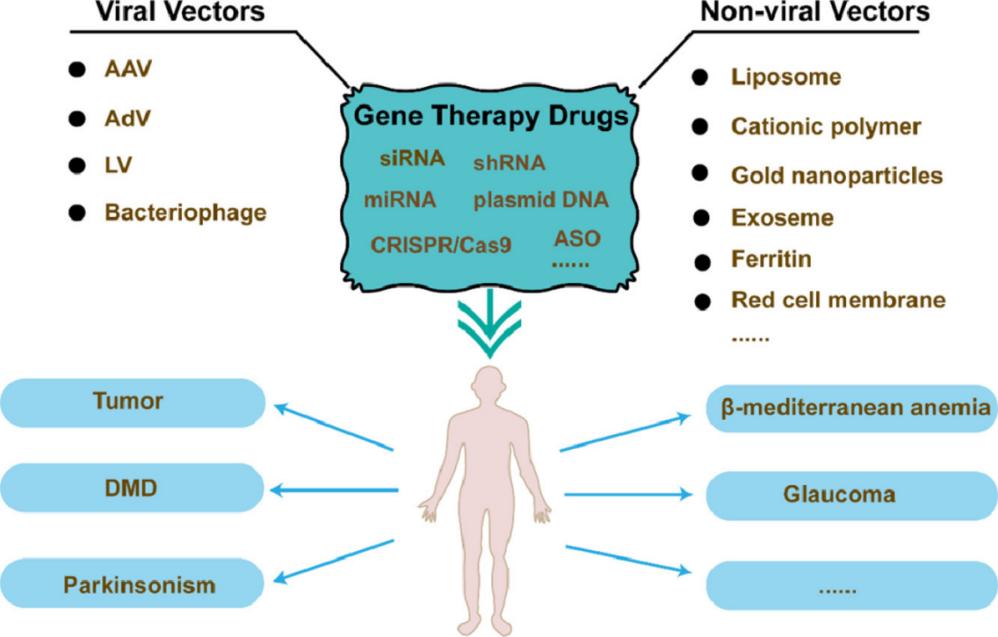 Fig.1 Gene therapy drugs. (Xiuhua Pan, et al. 2021)
Fig.1 Gene therapy drugs. (Xiuhua Pan, et al. 2021)
With the rapid development of materials science and nanotechnology, many new viral and non-viral vectors have been used for gene therapy drug delivery.
- Viral vectors mainly include adeno-associated virus (AAV), adenovirus (AdV), lentivirus (LV) and bacteriophage. Viral vectors for gene therapy drugs have the advantages of high transfection efficiency and stable transgene expression.
- Non-viral vectors mainly include cationic liposomes, micelles, polymers and inorganic nanoparticles. With the rise of biomaterials, innovative nanocarriers include DNA nanocores, metal organic skeletons, cell membranes, etc. With the deepening of research, non-viral vectors have the advantages of large gene load, low immunogenicity, and high safety in large-scale production. Moreover, modified nanocarriers can not only increase drug loading and gene therapy effects, but also induce higher biosafety and higher targeting characteristics.
Applications for Gene Therapy Drug Delivery Systems
Gene therapy has the potential to treat genetic disorders, cancer, viral infections, and cardiovascular diseases by modifying disease-causing genes.
- Cancer Therapy: RNA interference (RNAi) offers potent gene silencing for cancer treatment.
- Duchenne Muscular Dystrophy: CRISPR/Cas9 restores gene coding frames, enabling mutation correction in Duchenne Muscular Dystrophy.
- Parkinson's Disease: CRISPR-Cas9 technology targets specific brain regions to alter function and treat neurological disorders.
Our Gene Therapy Drug Delivery Technologies for Biologics
CD Formulation is committed to exploring and researching gene therapy drug delivery systems for biologics, including lipid delivery systems for gene therapy, polymeric delivery systems for gene therapy, and lipid-polymer hybrid delivery systems for gene therapy.
Our Development Approaches
Gene therapy is one of the promising therapies that can treat many diseases such as genetic diseases, viral infections and cancer using regulatable genes. Therefore, it is crucial to construct gene therapy drug delivery systems for gene therapy of human genetic diseases and other diseases. For gene therapy drug delivery systems, our research goal is to develop vectors such as viral and non-viral vectors.
Viral Vector Gene Delivery Systems
The viruses we use for gene therapy drug delivery systems include retroviruses, adenoviruses, adeno-associated viruses, and herpes simplex viruses. Viral gene delivery systems mainly include viral vectors based on DNA, RNA and oncolytic virus vectors.
 Fig.2 Viral vector gene delivery systems. (CD Formulation)
Fig.2 Viral vector gene delivery systems. (CD Formulation)
- In Vivo Delivery: Genetic material is directly delivered to target tissues.
- In Vitro Delivery: Genes are introduced into bone marrow or other target cells.
- In-Situ Delivery: Genetic material is administered into the target tissue.
Non-viral Vector Gene Delivery Systems
Non-viral gene delivery systems include physicochemical methods such as physical methods and chemical methods.
- Non-viral physical gene delivery systems are artificially mediated by physical methods to introduce genetic material through the cell membrane. Our more mature physical methods of gene delivery include needle injection, ballistic DNA injection, sonoporation, photoporation, magnetic infection and hydroporation.
- Non-viral chemical gene delivery systems use synthetic or natural compounds to form particles (such as liposomes and polymers) to facilitate gene transfer into cells.
Why Choose CD Formulation?
- Tailored Solutions: Our expertise in lipids, polymers, and hybrid nanoparticles allows us to develop customized non-viral vectors to meet client-specific needs.
- Advanced Technologies: We apply cutting-edge nanotechnology to create safe, effective delivery systems for gene therapies.
- Viral and Non-Viral Expertise: We excel at constructing viral and non-viral vectors tailored for gene therapy drug delivery.
Published Data
Technology: Stimulus-responsive drug/gene delivery system based on polyethylenimine cyclodextrin nanoparticles
Journal: Carbohydrate Polymers
IF: 10.7
Published: 2022
Results:
The authors developed a targeted co-delivery system of doxorubicin and human telomerase reverse transcriptase small interfering RNA (hTERT siRNA) based on redox-sensitive folate-attached polyethyleneimine-β-cyclodextrin (roFPC) host-guest supramolecular nanoparticles for potential cancer therapy. The authors loaded adamantane-conjugated doxorubicin (Ad-Dox) into redox-sensitive folate-attached polyethyleneimine-β-cyclodextrin via supramolecular assembly, followed by electrostatically driven self-assembly between human telomerase reverse transcriptase small interfering RNA and redox-sensitive folate-attached polyethyleneimine-β-cyclodextrin/adamantane-conjugated doxorubicin to prepare the nanotherapeutic system. This co-delivery vehicle enabled doxorubicin to enhance the combined antitumor properties of gene transfection, good water solubility and biocompatibility, with significantly enhanced blood compatibility for cancer therapy.
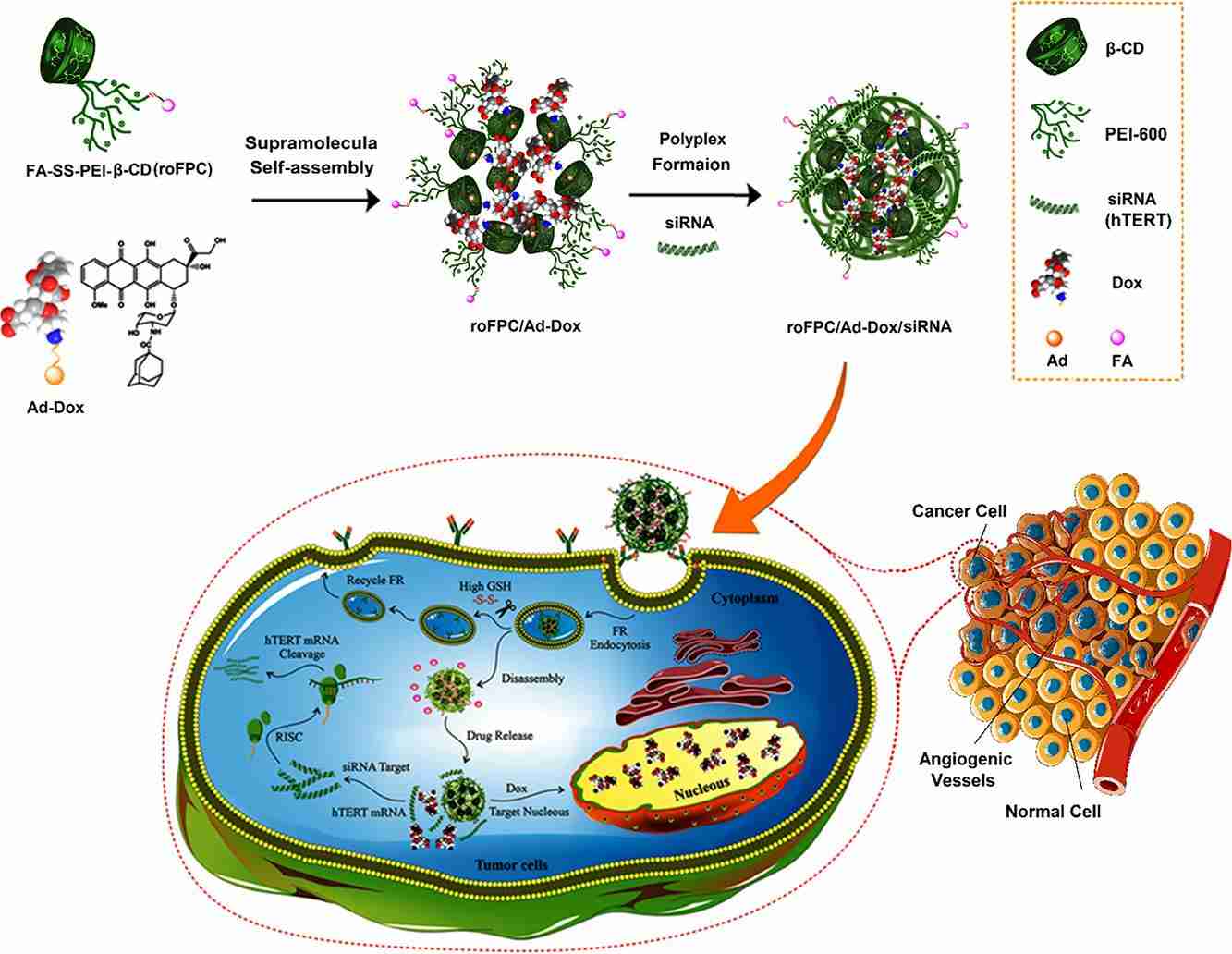 Fig.2 Stimulus-responsive drug/gene delivery system based on polyethylenimine cyclodextrin nanoparticles for cancer therapy. (Hanieh Mousazadeh, et al. 2022)
Fig.2 Stimulus-responsive drug/gene delivery system based on polyethylenimine cyclodextrin nanoparticles for cancer therapy. (Hanieh Mousazadeh, et al. 2022)
With the development of molecular biology, molecular genetics, clinical medicine and emerging nanomaterials, gene therapy drug delivery systems have been continuously optimized and matured and have been widely used in clinical practice. CD Formulation as a world-class nanoformulation servicing company, can develop gene therapy drug delivery systems for biologics based on lipids, polymers and lipid-polymer hybrid nanoparticles. If you are interested in our gene therapy drug delivery systems for biologics, please do not hesitate to contact us.
References
- Xiuhua Pan, Hanitrarimalala Veroniaina, Nan Su, et al. Applications and developments of gene therapy drug delivery systems for genetic diseases. Asian Journal of Pharmaceutical Sciences. 2021,16: 687-703.
- Hanieh Mousazadeh, Esat Bonabi, Nosratollah Zarghami. Stimulus-responsive drug/gene delivery system based on polyethylenimine cyclodextrin nanoparticles for potential cancer therapy. Carbohydrate Polymers. 2022,276:118747.
How It Works
STEP 2
We'll email you to provide your quote and confirm order details if applicable.
STEP 3
Execute the project with real-time communication, and deliver the final report promptly.
Related Services

 Fig.1 Gene therapy drugs. (Xiuhua Pan, et al. 2021)
Fig.1 Gene therapy drugs. (Xiuhua Pan, et al. 2021)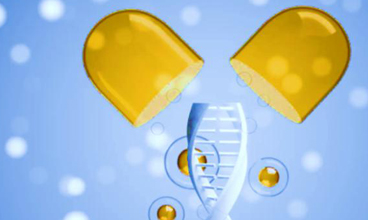
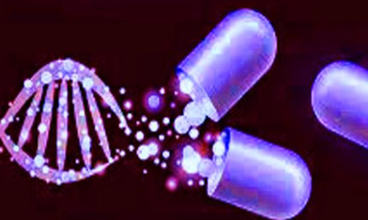
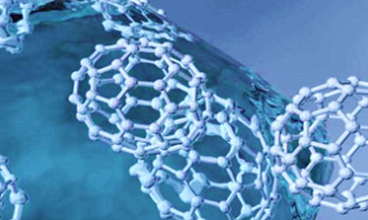
 Fig.2 Viral vector gene delivery systems. (CD Formulation)
Fig.2 Viral vector gene delivery systems. (CD Formulation) Fig.2 Stimulus-responsive drug/gene delivery system based on polyethylenimine cyclodextrin nanoparticles for cancer therapy. (Hanieh Mousazadeh, et al. 2022)
Fig.2 Stimulus-responsive drug/gene delivery system based on polyethylenimine cyclodextrin nanoparticles for cancer therapy. (Hanieh Mousazadeh, et al. 2022)
